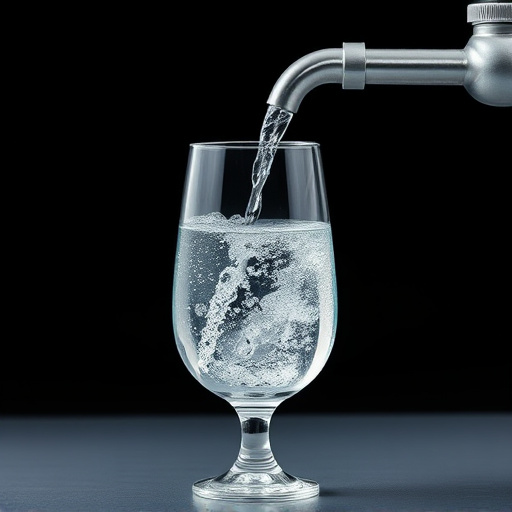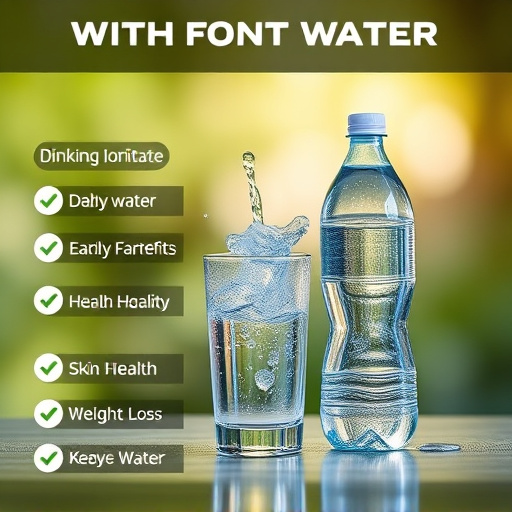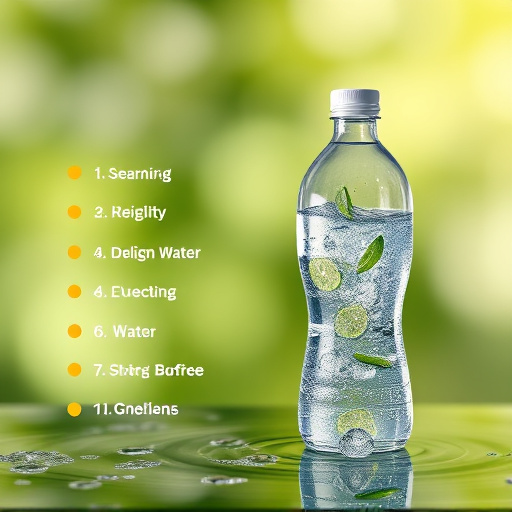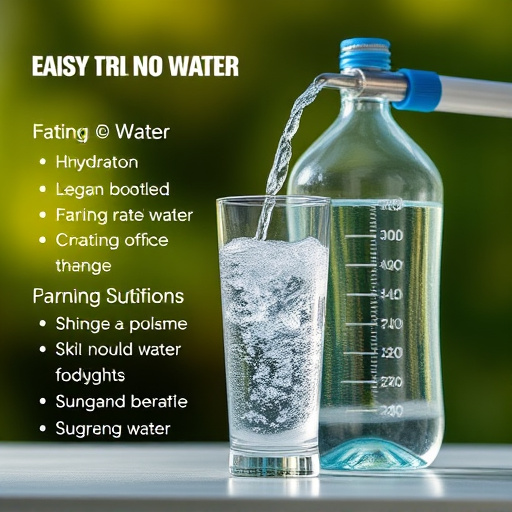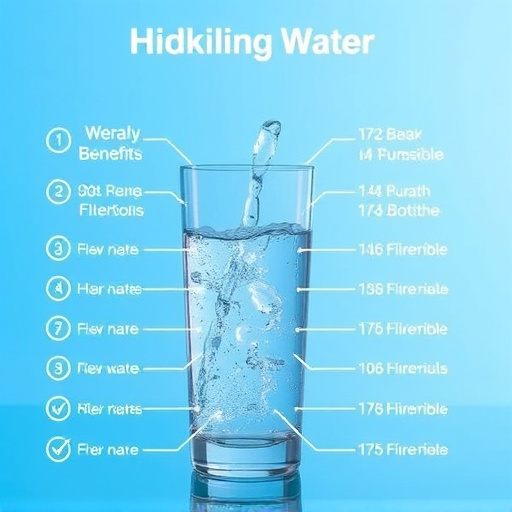Drinking Water: A Comprehensive Exploration
Introduction
In a world where access to clean and safe water is a fundamental human right, the concept of ‘Drinking Water’ stands as a cornerstone of global health and sustainability. This article aims to delve into the multifaceted world of drinking water, exploring its definition, significance, and the various forces shaping its role in our society. From its historical roots to modern technological innovations, we will navigate the complex landscape of this vital resource. By examining global trends, economic implications, and the interplay of policy and technology, this article seeks to provide a comprehensive understanding of drinking water’s present state and its promising—and challenging—future.
Understanding Drinking Water: A Basic Overview
Definition: Drinking water, as its name suggests, refers to water intended for human consumption, whether it is bottled or delivered through municipal supplies. It is a fundamental necessity, crucial for sustaining life, promoting good health, and facilitating daily activities.
Core Components: On a basic level, drinking water comprises two primary elements: water itself and the treatment processes that ensure its safety. Water, a compound made up of hydrogen and oxygen (H2O), can be sourced from various locations, including rivers, lakes, groundwater, and rain. The challenge lies in ensuring this natural source is free from contaminants that could pose health risks.
Historical Context: Access to clean drinking water has been a recurring theme throughout human history. Ancient civilizations developed early purification techniques, such as boiling and filtration, to make water safe for drinking. The 19th and 20th centuries saw significant advancements with the introduction of centralized water treatment systems and the discovery of disinfectants like chlorine, which revolutionized water quality worldwide.
Significance: Drinking water plays a pivotal role in numerous aspects of human life:
- Health and Wellbeing: Access to clean drinking water is directly linked to improved public health. It helps prevent the transmission of waterborne diseases, such as cholera, dysentery, and typhoid, which have historically plagued communities worldwide.
- Nutrition and Development: Proper hydration is essential for physical and cognitive development, particularly in children. It aids digestion, nutrient absorption, and overall physiological functions, contributing to better health outcomes.
- Social and Economic Progress: Availability of safe drinking water has been a significant driver of social development and economic growth. Communities with reliable water supplies often experience reduced absenteeism from school and work, fostering productivity and community well-being.
Global Impact and Trends
Drinking water’s influence extends far beyond national borders, shaping global health, environmental sustainability, and socio-economic dynamics. Here’s a glimpse into its international impact:
| Region | Key Trends/Challenges | Success Stories |
|---|---|---|
| Africa | Access to clean water remains a critical issue on the continent, with millions relying on unsafe sources. However, innovative solutions like community-led water projects and desalination efforts show promise. | Kenya: The ‘Clean Water for All’ initiative has successfully provided sustainable access to clean water in rural areas through local well drilling and maintenance programs. |
| Asia | Rapid urbanization poses challenges in maintaining water quality and infrastructure. Governments are investing heavily in water treatment and distribution networks to meet growing demands. | India: The government’s ‘Jal Jeevan Mission’ aims to ensure 100% household access to clean drinking water by 2024, with a focus on sustainable rural water supply. |
| North America | While generally well-supplied, the region faces challenges related to aging infrastructure and contamination from industrial activities. | United States: The EPA’s Safe Drinking Water Act has been instrumental in maintaining high water quality standards, ensuring the safety of drinking water for millions of Americans. |
| Europe | Focus on sustainable water management and reducing environmental impact. Desalination and wastewater recycling are gaining traction as innovative solutions. | Denmark: Leading the way in wastewater treatment, Denmark recycles over 80% of its sewage, producing high-quality recycled water for various purposes. |
| South America | Diverse challenges, from drought in some regions to excessive rainfall causing flooding. Investments in water storage and distribution systems are crucial. | Brazil: The country’s comprehensive national water resources policy has helped manage water allocation during droughts, ensuring essential supplies for agriculture and urban areas. |
Economic Considerations: Market Dynamics and Opportunities
The global drinking water market is a complex ecosystem with significant economic implications:
- Market Size and Growth: According to recent reports, the global drinking water treatment market size was valued at USD 367.2 billion in 2021 and is projected to grow at a CAGR of 8.5% from 2022 to 2030. This growth is driven by increasing urban populations, rising water pollution levels, and growing health awareness.
- Investment Patterns: Governments worldwide are investing substantial funds in water infrastructure development. For instance, the World Bank has committed over USD 16 billion since 2000 for water supply and sanitation projects globally. Private sector investment is also on the rise, with companies focusing on innovative technologies and sustainable practices.
- Economic Impact: Access to safe drinking water is a significant driver of economic growth. The World Health Organization (WHO) estimates that improving access to basic sanitation could add USD 2.5 trillion to global GDP by 2030. This highlights the potential for drinking water initiatives to stimulate economies and reduce poverty.
- Opportunities: Emerging technologies, such as advanced filtration systems, UV disinfection, and smart water management solutions, present new market opportunities. Additionally, there is a growing demand for bottled water, with consumers seeking convenience and health-focused products.
Policy and Regulation: Shaping the Future of Drinking Water
Policy frameworks play a crucial role in ensuring safe and sustainable drinking water supplies:
- International Agreements: The United Nations’ Sustainable Development Goals (SDGs) include a specific goal (SDG 6) dedicated to clean water and sanitation, providing a global framework for countries to work towards universal access.
- National Regulations: Governments worldwide have implemented various laws and regulations to protect water quality and ensure safe drinking water supplies. These include standards for maximum contaminant levels, water treatment requirements, and monitoring protocols.
- Regional Collaboration: Transboundary water resources require coordinated management. Regional organizations facilitate cooperation among countries sharing river basins or aquifers, ensuring fair distribution and sustainable use of these vital resources.
- Challenges and Gaps: Despite these efforts, challenges persist, including aging infrastructure, inadequate funding for water systems in developing countries, and the need for more stringent regulations to address emerging contaminants like microplastics and pharmaceutical residues.
Technological Innovations: Transforming Drinking Water
Technology is revolutionizing the way we access, treat, and manage drinking water:
- Advanced Filtration Systems: Membrane filtration technologies, such as reverse osmosis (RO) and nanofiltration, offer highly effective removal of contaminants, including heavy metals, bacteria, and chemicals. These systems are increasingly used in residential and commercial applications.
- UV Disinfection: Ultraviolet (UV) light is a powerful disinfectant, capable of inactivating microorganisms like bacteria and viruses. UV disinfection systems are being integrated into water treatment plants to provide an additional layer of protection against emerging pathogens.
- Smart Water Grids: The concept of ‘smart cities’ extends to water management with the development of smart water grids. These systems use sensors, data analytics, and IoT (Internet of Things) technologies to optimize water distribution, detect leaks, and manage demand.
- Desalination Advances: Desalination technology has made significant strides in providing water solutions for arid regions. Enhanced reverse osmosis (ERO) and multi-stage flash distillation (MSF) processes offer more efficient and cost-effective methods of turning seawater into potable water.
Challenges and Future Considerations: Ensuring Sustainable Water Supplies
While the future of drinking water looks promising with technological advancements and growing global awareness, several challenges must be addressed to ensure sustainable supplies for generations to come:
- Climate Change: Changing weather patterns impact water availability and quality. More frequent extreme weather events can strain existing water infrastructure and disrupt supply chains. Adapting to these changes requires innovative solutions and resilient water management strategies.
- Water Scarcity and Pollution: Many regions face water scarcity issues, exacerbated by climate change and population growth. Pollution from industrial activities, agricultural runoff, and improper waste disposal further complicate the challenge of providing clean drinking water.
- Infrastructure Upgrades: Aging infrastructure requires significant investment to maintain and improve water distribution networks. Upgrading pipes, reservoirs, and treatment facilities is essential for ensuring reliable supplies.
- Access in Rural Areas: Ensuring universal access to safe drinking water remains a priority, especially in rural communities with limited resources and infrastructure. Innovative solutions, such as decentralized water treatment systems, could play a crucial role in reaching these populations.
- Cost and Affordability: Providing safe drinking water must be economically sustainable. Balancing the costs of treatment, distribution, and infrastructure development while ensuring affordability for all is a complex challenge.
Conclusion: A Call to Action
Drinking water is a fundamental human right, essential for life and development. As we navigate an increasingly complex world with changing climate patterns and growing populations, it is imperative to recognize the critical role of this vital resource. By understanding the global impact, economic opportunities, technological advancements, and challenges, we can work towards sustainable solutions. Governments, international organizations, businesses, and communities must collaborate to ensure access to clean, safe, and affordable drinking water for all. This collective effort will not only improve health and well-being but also contribute to a more prosperous and resilient future for generations to come.


